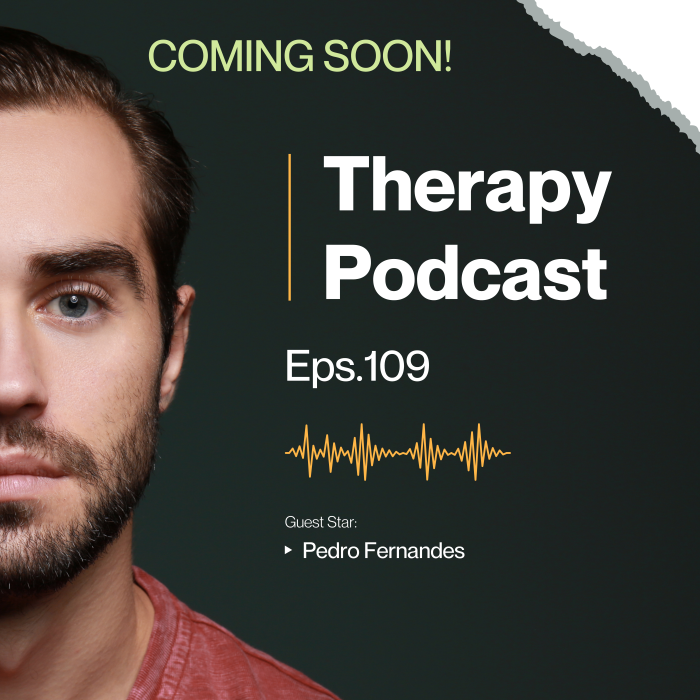
Problems We Treat
Anxiety Disorders
Anxiety
Anxiety is a normal reaction to stress and can be beneficial in some situations. It can alert us to dangers and help us prepare and pay attention.
Depression
Depression
Depression will affect 1 in 4 adults over the course of a lifetime. Having Depression doesn’t mean that are weak or failing in any way.
Stress
Stress
Stress is the feeling of being under too much mental or emotional pressure. Pressure turns into stress when you feel unable to cope.
Addiction
Addiction
Addiction is defined as not having control over doing, taking or using something to the point where it could be harmful to you.
Intrusive Thoughts
Intrusive Thoughts
Intrusive thoughts are a random, unsettling thought that seemingly pop into your head out of nowhere as if it were automatic.
Insomnia
Insomnia
Insomnia, also known as sleeplessness, is a sleep disorder in which people have trouble sleeping. They may have difficulty falling asleep or staying asleep as long as desired.
Trauma
Trauma
Trauma is a response to an event or experience that overwhelms a person’s ability to cope, often leaving lasting emotional, mental, or physical effects.
OCD
OCD
Obsessive-compulsive disorder (OCD) is an anxiety disorder involving recurring, unwanted thoughts or urges that compel repetitive behaviors.
Perfectionism
Perfectionism
Perfectionism is a trait marked by setting extremely high standards and being overly critical of both your own actions and others’.
Get Help Right Now
I’m Alistair Bond, Senior Private CBT Therapist and Clinical Director at CBT Clinic London. With over 15 years of experience in delivering CBT Therapy in London through both private practice and NHS settings, I’ve helped more than 1,000 individuals overcome their mental health challenges.
We specialize in evidence-based CBT Therapy tailored to your unique needs. If you’re seeking a private CBT therapist, we’re here to support you. Whether you’re facing anxiety, depression, stress, or other emotional concerns, our goal is to empower you with effective tools for lasting change. Take the first step toward better mental health today—explore our services or watch the video to learn how CBT Clinic London can support your journey to emotional well-being.
We get the results our patients need
TESTIMONIALS
What Our Clients Say




We only use Evidence-Based Therapy
At CBT Clinic London, we’re proud to offer treatments grounded in research and clinical expertise. Our therapies are tailored to address a wide range of emotional and physical health challenges, ensuring every individual receives the most effective care.
Endorsed by the National Institute for Health and Clinical Excellence (NICE) as the first-line treatment for many conditions, Cognitive Behavioural Therapy (CBT) has consistently shown remarkable success in improving mental health. If you’re seeking a private CBT therapist, our commitment to evidence-based methods ensures you receive personalized and results-driven support. Take the first step toward better mental health—CBT Clinic London is here to help.
PSYCHOLOGICAL ISSUES WE TREAT WITH CBT THERAPY
With training and experience in the main evidence-based psychotherapies, we work flexibly and collaboratively, tailoring therapy to the needs of each person we see.
Mindfulness Meditation Techniques to help you feel more connected to the present moment. Learn how to recognise and accept the feelings and emotions you’re experiencing through tried and trusted strategies.
Guided meditation to equip you with valuable tools to manage your thoughts. Practice for just 20 – 30 minutes per day to reap the life changing benefits of this ancient practice.
Workplace therapy is a vital tool for human resources in the modern world. Work based stress is experienced by 35% of employees. Tackling work based stress within the workplace not only shows you’re actively protecting your staff, it also helps the productivity and overall morale of your teams.
I can offer help and support to your employees either one 2 one or in group sessions even for those who are currently struggling but would find the techniques useful.
FAQ
Frequently Asked Questions
CBT Therapy is a talking therapy that helps us to become aware of and change our “unhelpful thoughts and “unhelpful behaviours”. The CBT model says that it is our “unhelpful thoughts” that create our distressing and overwhelming emotions which often lead to negative behaviour and unwelcome physical changes in our bodies. So by changing the way we think and creating a kinder, balanced and more realistic thinking style, we can alleviate a large part of our own emotional distress and “problems”.
The CBT model also says that our “unhelpful behaviour patterns” cause us to then think in an “unhelpful way” which then causes all the difficulties and changes we have just mentioned.
So by recognising and changing our “unhelpful behaviour into more “helpful behaviour” we can reduce the difficulties we are unknowingly creating for ourselves.
CBT Therapy, unlike some of the other talking treatments, mainly focuses on the ‘here and now’ problems and difficulties. Instead of focusing on the causes of your distress or symptoms in the past, it looks for ways to improve your state of mind right now. If we do need to discuss past issues we only will do so in relation to how those events have affected your thinking and behaviour in the present day.
CBT has been shown to help with many different types of problems. These include: Anxiety, Depression, Panic, Phobias (including Agoraphobia and Social Anxiety), Stress, Insomnia, Bulimia, Obsessive Compulsive Disorder (OCD), Post-Traumatic Stress Disorder (PTSD), Bipolar -Disorder and Psychosis.
CBT can also help if you have difficulties with Anger, a low opinion of yourself or physical health problems, like Pain or Chronic Fatigue.
CBT can help you to make sense of overwhelming problems by breaking them down into smaller parts. This makes it easier to see how they are connected and how they affect you. These parts are:
Situation – a problem, event or difficult situation.
From this can follow:
- Thoughts:
- Emotions
- Physical feelings
- Actions
Although CBT is a therapy that predominantly focuses time, effort, change, and attention on the things that are creating an experience in the present day. CBT does not just stop there. CBT also recognises that our past has a huge influence on who we are in the present day. How we think and how we behave. For a therapist to disregard or ignore this fact when treating a patient is a kind of professional negligence. For a client or patient to be blind to this fact is also extremely unhelpful and often a barrier to their recovery.
Our minds are a creation of every experience we’ve had in the past good and bad, pleasant and unpleasant, nice not nice, wanted not wanted. The way that you think, the things you believe about yourself, about other people and the world and life itself are a direct consequence of the past creating and shaping the mind you have right now in the present day.
Many behaviours that we do in the present day whether it is to protect yourself, whether it is to fix something about ourselves that we believe is wrong, or whether it’s just to compensate for some perceived inadequacy or failure inside of us. All have their roots in the past and past experiences. Other more easily recognised behaviours ie Avoidance behaviours, safety behaviours, OCD behaviours. addiction behaviours eating behaviours all stem from the past.
BF Skinner the renowned Behaviourist famously said “Man is a product of his past experiences.” Although his quote adds weight to the fact that CBT Therapy should consider the past when working with clients. However, what Skinner said is not actually correct. Your mind is in fact the creation of your past experiences, not you. This is a very important distinction.
INSIGHTS & NEWS
CBT Therapy London: Articles
CBT Therapy and Grounding Objects.
Grounding objects are used in CBT Therapy particularly when someone is...
20 Things That Make Intrusive Thoughts Worse
CBT Therapy and Intrusive Thoughts We've spent a look of time recently...
Does Cognitive Behavioural Therapy (CBT Therapy) and Mindfulness Help Pure O or Intrusive Thoughts?
Does CBT Therapy Cure Pure O or Intrusive Thoughts? Does CBT Therapy Cure...
CBT Therapy in London
Where to find CBT Therapy in London
CBT Therapy in London
At CBT Clinic London, we specialize in providing CBT Therapy in Canary Wharf for adults aged 18 to 75. Conveniently located at 25 Cabot Square, E14, our clinic is just minutes away from Canary Wharf DLR, Jubilee Line, and Crossrail stations, ensuring easy access for clients from across London.
With over 20 years of experience, CBT Clinic London is recognized as a trusted provider of CBT Therapy in London. Our team of BABCP-accredited private CBT therapists is dedicated to delivering evidence-based care, using the gold-standard approach to address psychological challenges such as stress, anxiety, and depression.
Whether you prefer face-to-face sessions in a welcoming environment or flexible online CBT therapy from the comfort of your home, CBT Clinic London is tailored to support your mental health needs. Contact CBT Clinic London today to take the first step toward emotional resilience and lasting change
25 Cabot Square, London E14 4QZ
info@cbtcliniclondon.com
![]() 0207 157 9924
0207 157 9924















